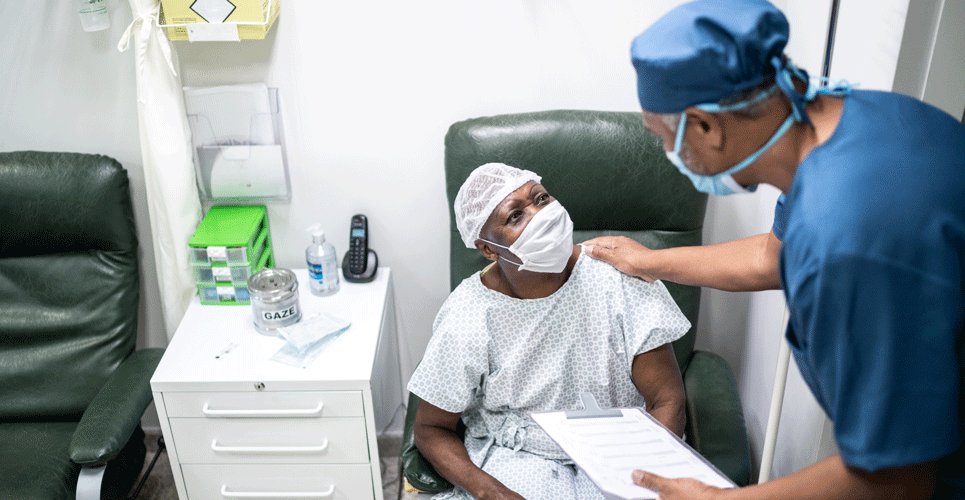Haematological cancer patients appear to be at a higher risk of severe COVID-19 infections despite having received two vaccination doses
Haematological cancer patients appear to be still at an increased risk of severe COVID-19 infections despite having received full vaccination. This was the finding of a preliminary analysis of a disease register by researchers from Fondazione Policlinico Universitario Agostino Gemelli, Rome, Italy.
In April 2020, the European Haematological Association – infectious Diseases Working Party, established EPICOVIDEHA, an open, web-based registry, designed to collect information on the epidemiology, risk factors and mortality rates among patients with haematological cancer, who became infected with COVID-19. The registry was established given how patients with blood cancers had a dysfunctional immune system and were therefore at an increased risk of complications if infected with COVID-19. Published data from the registry on 3801 patients has already shown a mortality rate of 31.2%, of whom, 58% died due to COVID-19 and 13.1% due to a combination of their malignancy and COVID-19.
With widespread vaccination against COVID-19, it was likely that the mortality rate would have been substantially lower and the Italian team prospectively collected registry data on adults who were either partially or fully vaccinated and who developed breakthrough COVID-19 infections, to assess the efficacy of the vaccines among those with haematological cancer. The register captured data on the underlying condition of the patients before infection with COVID-19, their malignancy and vaccination status and details of their infection, e.g., disease severity, hospitalisation and mortality. They deemed fully vaccinated individuals as those form whom the second vaccine dose was administered 14 days before COVID-19 symptom onset or a positive PCR test result.
Findings
A total of 113 patients with COVID-19 infection and which occurred among both partially and fully vaccinated individuals with a haematological cancer were identified. The median age of the patients was 66 years (61.1% male) and the most common malignancies were chronic lymphoid leukaemia (24.8%) and non-Hodgkin lymphoma (31.9%) and slightly more patients had active (53.1%) compared to controlled disease (45.1%) before infection with COVID-19. In addition, 87 (77%) of patients were fully vaccinated. From a subset of 40 of these fully vaccinated patients, only 13 (32.5%) had mounted an antibody response to vaccination with the remaining patients (67.5%) deemed non-responders.
Overall, 79 (60.4%) of haematological cancer patients had a severe COVID-19 infection, with 66.4% hospitalised and 21.3% admitted to an intensive care unit. Thirty days post-COVID-19 infection, the overall mortality rate was 12.4% (14 patients) and 10 of the 14 died due to their underlying malignancy. Interestingly, there were no differences in mortality between partially or fully vaccinated individuals (15.4% vs 11.5%, partial vs full vaccination, p = 0.73) or in terms of whether patients were considered as responders or non-responders to vaccination.
While the authors recognised that this was preliminary data, they are continuing to recruit haematological caner patients and will draw further conclusions once more data becomes available.
Citation
Pagano L et al. COVID-19 in vaccinated adult patients with hematological malignancies. Preliminary results from EPICOVIDEHA. Blood 2021.

